Duck and chicken eggs are both familiar and nutritious foods for family meals. However, many people wonder which is better, duck or chicken eggs? Do you have a convincing answer yet? If not, let’s find out in the following article!
1 Which is more nutritious: Duck or Chicken Eggs?
The answer is: “Duck eggs are more nutritious than chicken eggs”. According to the USDA’s National Nutrient Database in 2002, comparing the nutritional content of 100g of chicken and duck eggs, duck eggs have higher levels of , , , , and various .
To determine which is more nutritious, chicken or duck eggs, we need to consider various aspects such as size, nutritional content, etc. of both types of eggs. For a clearer understanding, let’s take a closer look.
Egg Size
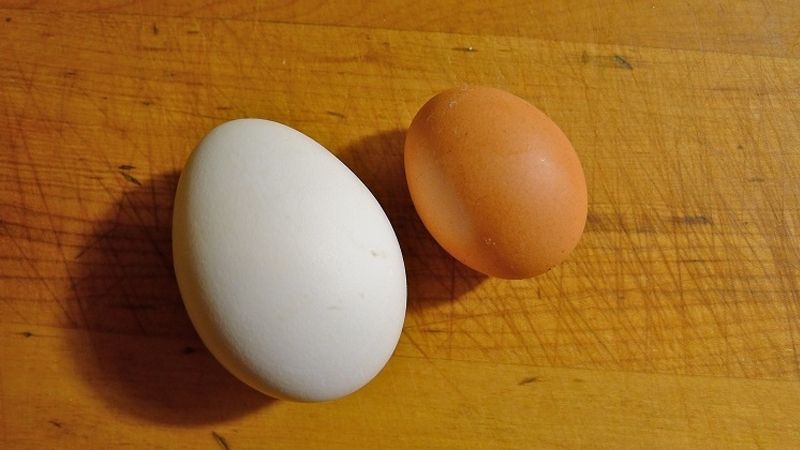 Duck eggs are larger than chicken eggs
Duck eggs are larger than chicken eggs
As you may know, duck eggs are larger, by about 30-50%, compared to chicken eggs. Therefore, when you eat a duck egg, it is equivalent to eating 1.5 chicken eggs.
Proportionate to the size of the egg, the yolk of a duck egg is also larger and has a deeper orange color. Since the nutritional content of eggs is concentrated in the yolk, duck eggs are more nutritious than chicken eggs.
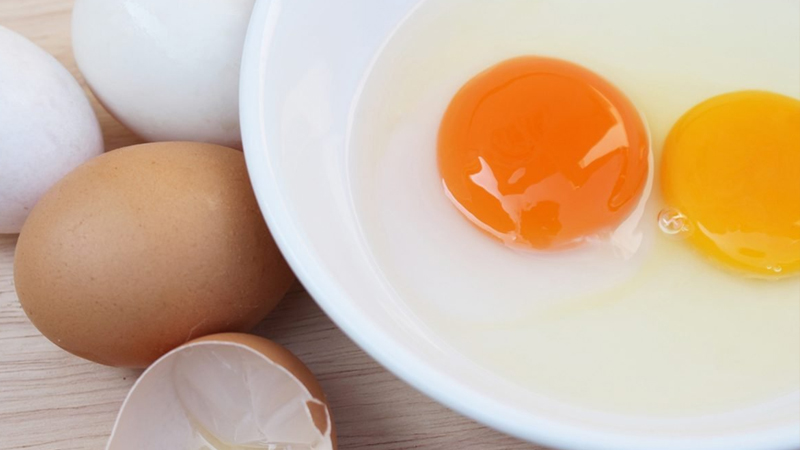
Moreover, duck egg shells are harder and stronger, which allows for longer storage life compared to chicken eggs.
Energy Content
According to the Vietnamese Food Composition Table by the National Institute of Nutrition in 2006, chicken eggs provide 166 kcal/100g while duck eggs provide three times more energy with 484 kcal/100g.
Protein Content
Considering 100g of cooked eggs, duck eggs provide 12g of protein, while chicken eggs only provide 10g of protein.
The protein in eggs has antibacterial, antioxidant, and anti-cancer cell properties. Additionally, protein helps you stay fuller for longer, reducing food intake and aiding in weight loss.
Vitamin B12 Content
Duck eggs contain nearly five times more vitamin B12 than chicken eggs (duck eggs have 5.4mcg of vitamin B12, while chicken eggs have 1mcg). In terms of daily nutritional value, vitamin B12 in duck eggs meets 168%, while chicken eggs only meet 32%.
Vitamin B12 is essential for maintaining cardiovascular health, enhancing red blood cell function, supporting digestion, and preventing memory loss.

Vitamin B6 Content
Vitamin B6 is considered one of the most important vitamins for the body. It helps ensure efficient nerve and liver function, boosts energy levels, and promotes healthy skin, hair, and nails.
The vitamin B6 content in duck eggs is 0.25mcg (accounting for 15% of the daily nutritional value), while chicken eggs contain 0.139mcg (accounting for 8% of the daily nutritional value).
Omega-3 Fatty Acid Content
Egg yolks are rich in omega-3 fatty acids, which are beneficial for cardiovascular health. Since duck egg yolks are larger, they contain more omega-3 and other essential fatty acids (linoleic acid) than chicken eggs.
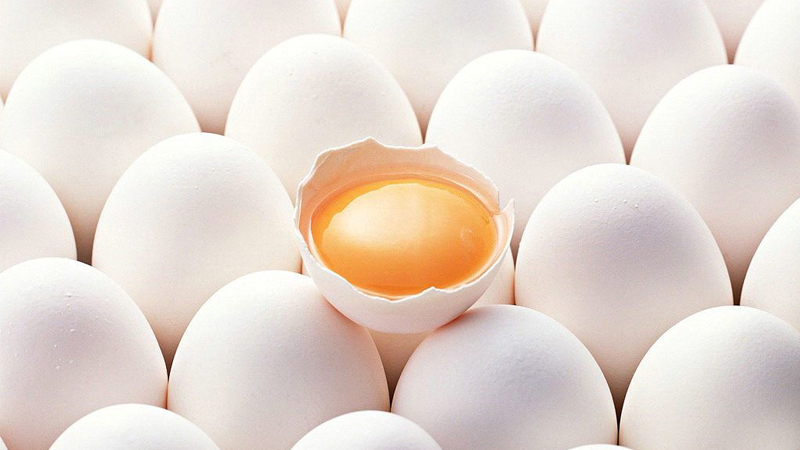
Other Amino Acids
Duck eggs generally have higher amino acid content than chicken eggs. These amino acids include: Threonine, isoleucine, tryptophan, leucine, methionine, lysine, , tyrosine, and phenylalanine, among others.
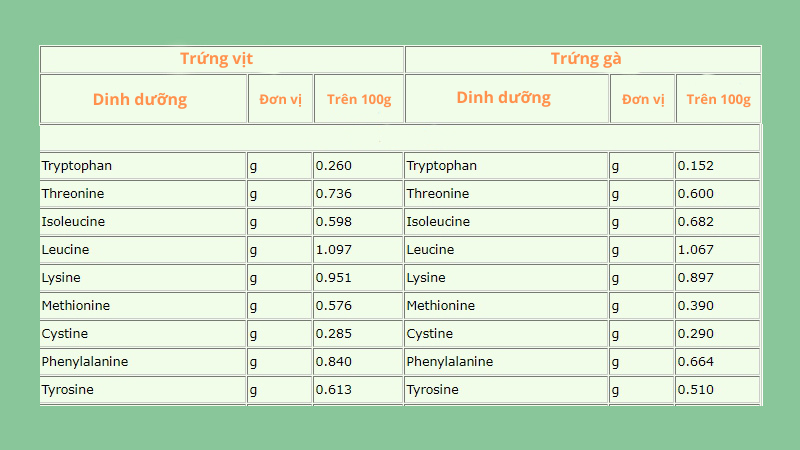
Antibacterial Properties of Egg Whites
Duck egg whites have higher antibacterial activity against Salmonella bacteria compared to chicken egg whites. Thus, duck eggs provide a more favorable environment for embryo development.
2 Some Things to Keep in Mind When Consuming Eggs
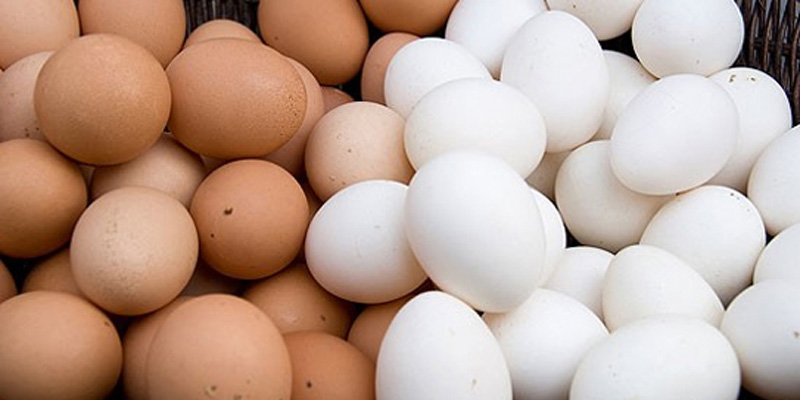
Although duck eggs are more nutritious than chicken eggs, they contain significantly higher levels of and . In particular, 100g of duck eggs contain up to 884mg of cholesterol, while chicken eggs contain only 425mg.
Therefore, individuals with a history of heart disease or high cholesterol should limit their consumption of duck eggs to 2-3 eggs per week. Alternatively, they can opt for chicken eggs instead.
Many people mistakenly believe that egg yolks are more nutritious than whites, so they tend to eat only the yolks and discard the whites. However, egg whites contain lecithin, which aids in cholesterol breakdown. Thus, it is recommended to consume both the yolk and the white to ensure optimal health.

For those with gallstones, it is best to avoid eggs altogether. Eggs are rich in protein and fat, which increase the workload on the gallbladder and can be detrimental to its health.
So, we now have the answer to the question “Which is better, duck or chicken eggs?” based on the information provided. However, chicken eggs also contain essential nutrients, so it is advisable to include both types of eggs in your diet to meet your body’s needs.





































